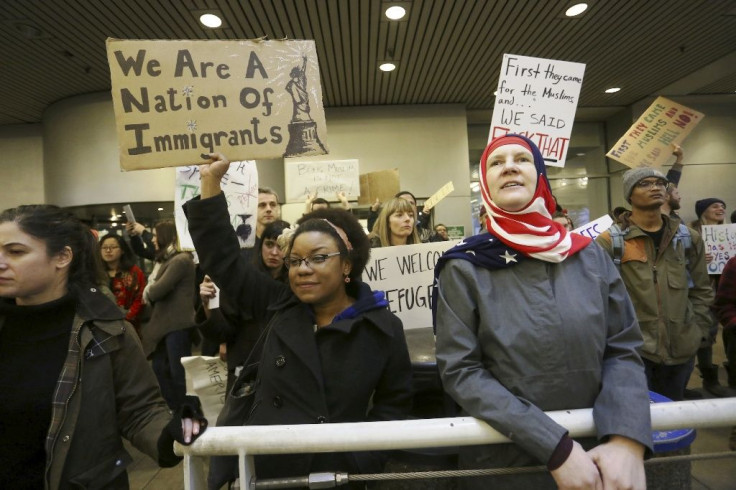Trump Immigration Ban: House Judiciary Committee Head Kept In Dark While Staffers Worked On Executive Order, Report Says

The House Judiciary Committee chairman and Republican Party leadership were not consulted by President Donald Trump’s administration on the temporary immigration ban even as senior staffers of the committee worked on it weeks before Trump’s swearing-in ceremony, Politico reported Monday, citing sources familiar with the matter.
The work on the controversial ban, which applies to seven countries with predominantly Muslim population, began during Trump’s transition period following the election, and before his inauguration, Politco reported. The staffers who worked on the travel ban were made to sign nondisclosure agreements — an unusual move for congressional employees, the report added. A nondisclosure agreement obligates the parties signing it to not disclose confidential information.
"Like other congressional committees, some staff of the House Judiciary Committee were permitted to offer their policy expertise to the Trump transition team about immigration law. However, the Trump Administration is responsible for the final policy decisions contained in the executive order and its subsequent roll out and implementation," a House Judiciary Committee aide, whose name was not revealed, told Politico, adding that Judiciary Committee Chairman Bob Goodlatte (R-Virginia) was not "consulted by the administration on the executive order."
Furthermore, Speaker of the House Paul Ryan (R-Wisconsin) and Senate Majority Leader Mitch McConnell (R-Kentucky) only saw the executive order when reporters received it Friday night — after Trump signed it, Politico reported, citing Capitol Hill sources. The GOP leaders did not receive talking points from the White House over the order until late Saturday night.
"Their coordination with the Hill was terrible," one senior GOP source told Poltico. “We didn't see the final language until it was actually out.”
The rollout of the executive order was coordinated mostly by Stephen Miller, the White House policy director, and senior strategist Stephen Bannon.
The order halts immigration from seven countries — Iran, Iraq, Syria, Sudan, Libya, Yemen and Somalia — for three months. It is also applicable to green card holders and people with valid visas, and bars all refugees from entering the U.S. for 120 days.
© Copyright IBTimes 2024. All rights reserved.






















